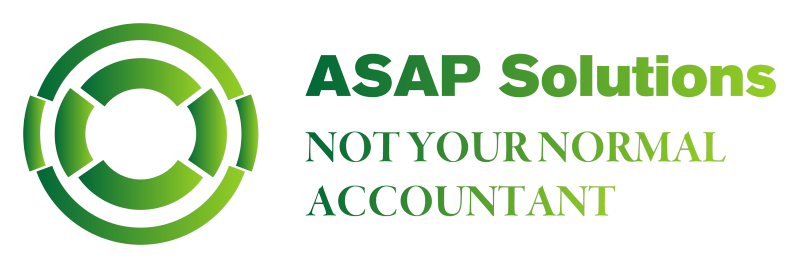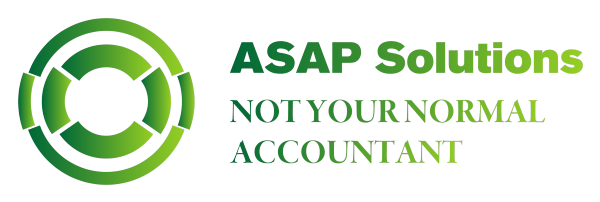The small business sector has been described as the engine room of the economy and the country’s biggest employer – and it’s not hard to see why.
So, it’s important to become familiar with the many possible tax benefits for small businesses. Typically, a small business is defined as having an annual turnover of less than $10 million. However, for the valuable small business CGT concessions, the turnover threshold is just $2 million. Don’t worry if your turnover is higher – you may still be eligible for certain concessions. To prevent businesses from exploiting the system by splitting activities to stay under the threshold, turnover must be calculated from aggregated amounts. This means considering your annual turnover (gross income, excluding GST) from all sources.
As a business owner, you can claim certain business expenses on your tax return to reduce your taxable income. From office supplies to travel expenses, there are various types of business expenses that may be eligible for deductions. While some deductions can be complex, like figuring out the percentage of computer use for work, others are 100% tax deductible. You can start maximising your tax savings by looking into which expenses you can claim.
How do tax deductions work?
Claiming work-related deductions on your tax return is your entitlement. To do so, you must meet the following criteria:
- Keep records to prove your expenses.
- Have spent the money yourself.
- Not have been reimbursed for the cost.
- Ensure the expense is related to your job.
If an expense is for both work and private purposes, you can only claim the work portion. Tax law requires records to be kept for five years and can include receipts, expense invoices, credit card statements, employee records, vehicle records, lists of debtors and creditors and asset purchases. Records can be kept on paper or electronically but should be easily retrieved. Rest assured that we will guide you through this process and help you maximise your deductions.
What are the different types of deductions you can claim?
Vehicle and travel expenses
The most important thing to remember when it comes to work-related vehicle and travel expenses is that you must keep records, which will make life a lot easier at tax time. Whether it’s your own vehicle expenses, or accommodation and transport expenses for airfares, train, tram, bus or taxi fares – all of these can be claimed. Keep in mind some fringe benefits tax may be incurred for some travel.
Work-related clothing and laundry expenses
Do you have to wear specific attire for your job? Whether it’s a suit, a uniform with a company logo, or clothes purchased from the store you work in, it’s important to understand your employer’s dress policy. But when it comes to tax deductions for work clothing, there are specific criteria that must be met. They must be specific to your occupation, protective clothing or footwear or a specific uniform.
Working from home deductions
Whether you work from a designated room or not, there are different methods to choose from when claiming tax deductions from home office expenses. Keep all your records and you can even deduct expenses for computers, phones, and other necessary devices. Plus, running costs for electricals are also deductible. Remember, you can claim up to $300 for home office equipment or a decline in value for pricier items. And don’t forget your phone bill if it’s used for work.
Professional associations, magazine subscriptions and trade union fees
As part of your profession, you might be a member of a professional association or a trade union, which fees are deductible. Magazine subscriptions that are aligned with your work, for example, an investor with financial publications are claimable.
Interest and investments
Deductions can be claimed for interest, dividends, or other investment income expenses. When it comes to interest on income expenses, account-keeping fees for investment purposes can be claimed. However, keep in mind that if you have a joint account, you can only claim your portion of the fees.
As for shares and dividends, you can deduct interest charged on borrowed money used to purchase shares. If the borrowed money was used for both private and income-producing purposes, it must be divided accordingly.
Income protection insurance
Including insurance premiums for loss of income in your deductions is a smart financial move. However, it’s important to note that not all insurance policies are eligible for deduction. Life insurance, critical care insurance, trauma insurance, and policies paid for out of your superannuation contributions do not qualify. Make sure to exclude these when claiming your deductions.
Self-education expenses
Claiming self-education expenses can be beneficial if your studies directly contribute to your work. To be eligible, the course you pursue must result in a formal qualification that meets the following criteria:
- The course must maintain or enhance the skills and knowledge required in your current job.
- The course should also lead to, or have the potential to lead to, an increase in your income.
- It’s important to note that you cannot claim expenses for self-education that are not significantly connected to your current employment.
Here is a list of expenses that you can claim related to your self-education:
- Accommodation and meals (if you are staying away from home overnight)
- Computer consumables
- Course or tuition fees
- Depreciating assets with a cost exceeding $300 (or decline in value)
- Equipment or technical instruments costing $300 or less
- Equipment repairs
- Fares
- Home office running costs
- Interest
- Internet usage (excluding connection fees)
- Parking fees (only for work-related claims)
- Phone calls, postage and stationery
- Student union fees
- Student services and amenities fees
- Textbooks
- Travel to and from your place of education (only for work-related claims)
If an expense is both for your self-education and other purposes, you can only claim the portion that relates specifically to your self-education as a deduction.
Tools and equipment
You can claim a deduction for tools and equipment used for work purposes. If the items are also used for private expenses, you will need to divide the claim. For assets that cost $300 or less and are not part of a set, an immediate deduction can be claimed. For items over $300 or part of a set, you can claim a deduction based on their decline in value. Additionally, the cost of repairing and insuring tools and equipment can also be claimed if necessary.
Tax preparation fees and travel to see your accountant
Remember that you can claim your last year’s accountant fees and travel costs to and from these consultations.
Government Tax breaks for your small business
Although the Temporary Full Expensing scheme has now finished from 1 July 2023 the government has increased the instant asset write-off threshold to $20,000. This means that small businesses with an aggregated turnover of less than $10 million, will be able to immediately deduct the full cost of eligible assets costing less than $20,000 that is first used or installed ready for use between 1 July 2023 and 30 June 2024. The $20,000 threshold will apply on a per-asset basis, so small businesses can instantly write off multiple assets.
Assets valued at $20,000 or more (which cannot be immediately deducted) can continue to be placed into the small business simplified depreciation pool and depreciated at 15% in the first income year and 30% each income year after that.
The Small Business Technology Investment Boost offers a generous 120% deduction to digitise its operations with digital assets and services. Eligible expenditure includes digital enabling items, digital media and marketing (such as webpage design), e-commerce (such as portable payment devices) and cyber security systems. The boost is applicable for expenses and depreciated assets from 29 March 2022 to 30 June 2023, with a maximum expenditure cap of $100,000. If the expenditure is on a depreciating asset, the asset must be first used or installed ready for use for a taxable purpose by 30 June 2023.
For small businesses, investing in the skills and training of their staff can be a key factor in success. To support this, the Small Business Skills and Training boost provides an extra tax deduction of 20% on eligible training courses provided by registered external organisations. This boost is available to businesses with an aggregated annual turnover of less than $50 million and runs from 29 March 2022 to 30 June 2024. It’s important to note that the training must be provided by a registered business within Australia and cannot be in-house or on-the-job training. If you’re a small business owner looking to invest in the growth and development of your staff, the Small Business Skills and Training boost provides a great opportunity to do so while also receiving a tax benefit.
When it comes to running a small business, keeping on top of your paperwork may be the last thing on your to-do list. So while you focus on running and growing your business, our team at ASAP Solutions can help with getting your records in order and discovering the right deductions.
To make the most of tax time and get your refund as fast as possible, contact us and lock in an appointment.



